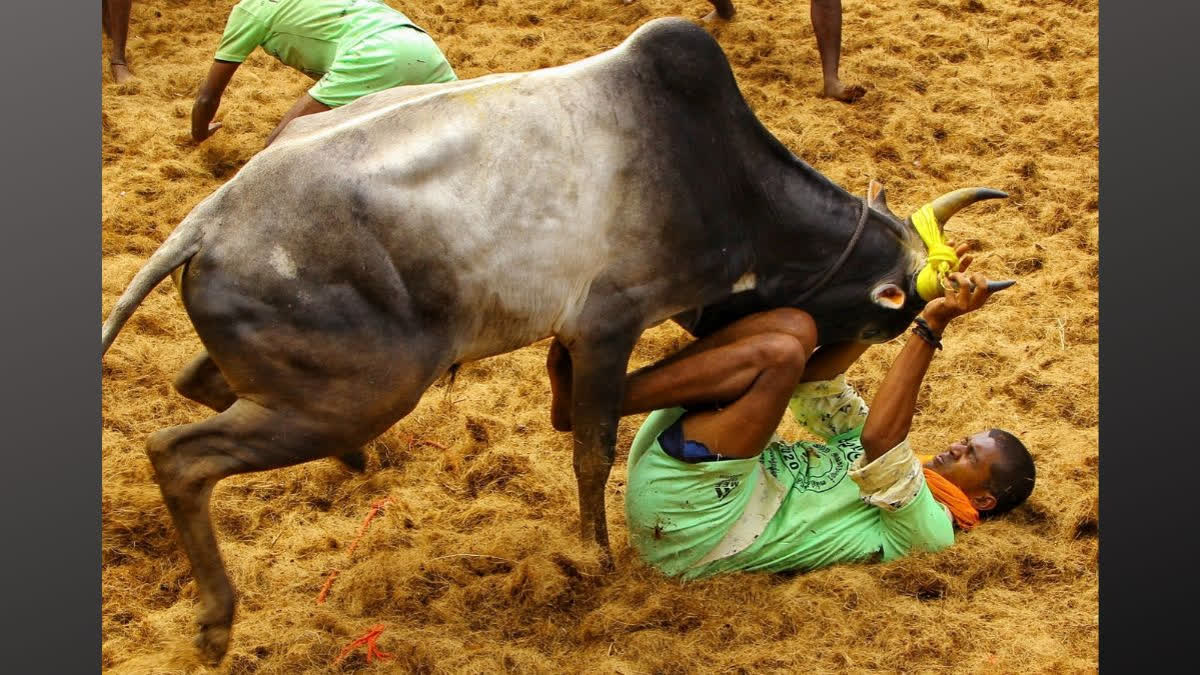New Delhi: A Constitution bench of Supreme Court has allowed the laws amended by states facilitating the conduct traditional bull-taming sport Jallikattu, Kambala race in Karnataka and bullock cart races in Maharashtra, thereby offering Constitutional protection these sports.
Justice Aniruddha Bose who pronounced the verdict on behalf of the five-Judge bench led by Justice KM Joseph held that the sports can get Constitutional protection as a "traditional and cultural right." "Jallikattu", also known as "Eru Thazhuvuthal", is a bull-taming sport played in Tamil Nadu as part of the Pongal harvest festival while Karnataka has Kambala races and Maharashtra has its bullock cart races.
The Karnataka "Kambala" race, held between November and March, involves a pair of buffaloes tied to a plough and anchored by one person. The unit together will run in parallel muddy tracks and the fastest team wins.
Legislations are valid- "Our decision on the Tamil Nadu Amendment Act would also guide the Maharashtra and Karnataka Amendment Acts and we find all the three amendment Acts to be valid legislations," the bench said.
The bench also comprising justices Ajay Rastogi, Hrishikesh Roy and C T Ravikumar said the law contained in these Acts, rules and notifications shall be strictly enforced by the authorities. "In particular, we direct that the district magistrates/competent authorities shall be responsible for ensuring strict compliance of the law as amendment along with rules/notifications," Aniruddha Bose said.
Minimises cruelty to animals- "The Tamil Nadu Amendment Act is not a piece of colourable legislation. It relates in pith and substance to Entry 17 of List III of Seventh schedule to the Constitution of India," the bench said while clarifying that it minimises cruelty to animals in the concerned sports.
""Jallikattu" is a type of bovine sports and it is satisfied on the basis of materials disclosed before the court that it is going on in Tamil Nadu for at least last few centuries.But whether this has become integral part of Tamil culture or not requires religious, cultural and social analysis in greater detail, which in our opinion is an exercise that can't be undertaken by the judiciary," the bench said.
People not judiciary have to decide- "The question as to whether the Tamil Nadu Amendment Act is to preserve the cultural heritage of a particular state is a debatable issue which has to be concluded in the house of the people," Aniruddha Bose read from the order.
The top court noted that this ought not to be a part of judicial inquiry and particularly, having regard to the activity in question and the materials in the form of texts cited before the court by both the petitioners and the respondents, this question cannot be conclusively determined in the writ proceedings.
No flaw in legislation- "Since legislative exercise has already been undertaken and 'Jallikattu' has been found to be part of cultural heritage of Tamil Nadu, we would not disturb this view of the legislature," the order said. "The amendment Act read with the rules seek to substantially minimise the pain and suffering and continue with the traditional sport. The Amendment having received Presidential assent, we don't think there is any flaw in the state action," it added.



